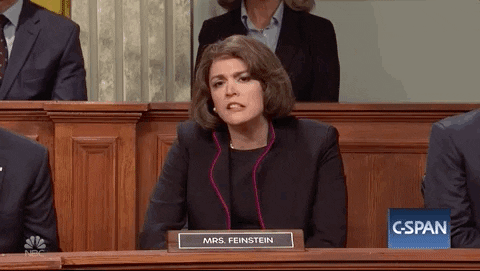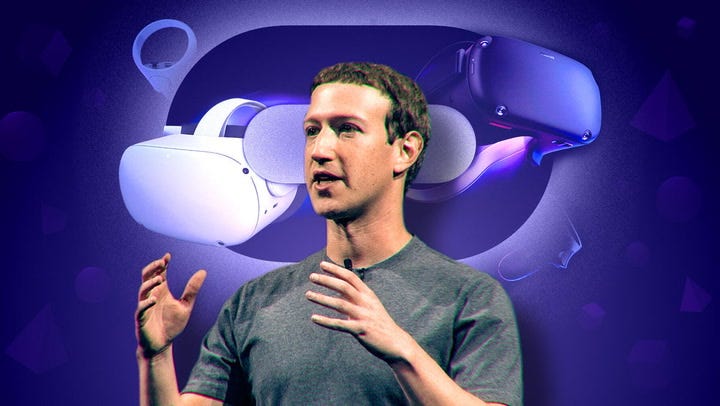Why Facebook wants to rebrand itself for the ‘Metaverse’
Facebook metaverse: What exactly is the metaverse and why is Facebook so invested in it? More importantly, does the metaverse even exist?
Hello and Welcome to
Rise n Shine☀ - Sunday Special
Every Sunday, an email will arrive in your inbox detailing a specific topic to help you understand it better.
Sign up below for free 👇🏻
Every day, keep an eye on the Promotions tab for new mail.
Facebook plans to rename itself. And the change could be announced at the company’s annual Connect Conference on October 28 or earlier, according to a report by The Verge. For Facebook, the ‘rebranding’ isn’t just about a switch in the company name but a reflection of the company’s growing ambitions and focus on a new area: metaverse.
Facebook has already announced plans to invest $50 million as part of its efforts to create a ‘responsible’ metaverse. It also plans to create nearly new 10,000 jobs in Europe as part of its ‘metaverse’ ambitions. But what exactly is the metaverse and why is Facebook so invested in it? More importantly, does the metaverse even exist? We explain below.
What is this about Facebook renaming itself?
It was The Verge that first reported on Facebook’s plans to rename itself. Just like how Alphabet is now the parent company of Google, we could see a new parent company, under which Facebook, WhatsApp, Instagram, and others operate.
Facebook’s attempt to rename is to align itself with the focus on building the metaverse, which CEO Mark Zuckerberg clearly sees as becoming a reality sooner or later. And Facebook, which also owns the Oculus VR gaming platform, doesn’t want to be left behind in the race to be a part of the metaverse.
It also signals that Facebook wants to be known for more than just social media. The timing would also seem right, considering the negative spotlight that Facebook is under, with the latest whistleblower revelations just adding to the company’s problems.
And Facebook is under regulatory scanner in most countries, including its home market of the US. But there are larger ambitions at play here, and that’s why we need to talk about metaverse in the context of Facebook.
Where does the idea of metaverse come from?
The idea follows from the cult science fiction novel Snow Crash by Neal Stephenson published in 1992, where the phrase metaverse was first used. The novel is set in a dystopian world where governments have ceded power to private corporations and deal with many aspects of the modern world be it virtual reality, digital currency, etc. Stephenson’s book has found a god-like reverence among Silicon Valley leaders.
But the idea of the metaverse has also been playing out in works such as Ready Player One by Ernest Cline (2011 novel, which later became a movie in 2018), and of course, there’s the Matrix as well. There are also several essays on the internet each trying to explain what the metaverse is or what it can be. VC investor Matthew Ball actually has a nine-part series on his blog, in addition to an introduction to the metaverse essay, which is a great primer for anyone who wants to dive deep into the concept.
What exactly is metaverse?
There can be many complicated answers to these questions. But a simplistic way to look at the metaverse is as a parallel, virtual, world where users can have different identities, possessions and characters.
In the complex explanation, Metaverse is supposed to be the post-Internet world, a decentralised computing platform of sorts if you will, which is continuous, and live. It is an entirely digital economy, and the way most Silicon valley intellectuals see this, metaverse exists both in the digital and physical realm.
Interoperability is key to metaverse’s success, according to Ball’s essay. Yes, virtual reality would be an element of this metaverse, but the idea goes beyond just donning a VR headset and starting to play a game. According to Ball, the metaverse does not reset or pause or end, but “continues indefinitely.”
Metaverse is not something that just one company can build. Nor is Facebook the only one working on this. Epic Games, the creator of Fortnite, has big plans for the metaverse using its unreal engine. In fact, Fortnite already has many elements which would conform to the idea such as live events, its own currency, etc.
How will the metaverse really work?
The metaverse is being envisioned as a new world order really, where your services could be offered virtually in exchange for other virtual assets, or Cryptocurrencies. The way to look at it is that your existence will be enmeshed with the digital world in a much deeper, complex way. On one level it does sound dystopic and most examples in popular fiction where the virtual and physical world have merged live up to that image.
Because everything and everyone is supposed to be a part of this, interoperability will be key. In order to ensure that the metaverse functions smoothly, it would require a rewriting of the current rules as they are for most of the internet services and functions, according to Ball.
What is Facebook’s plan with the metaverse?
The metaverse is critical for Facebook’s future and it is not hard to imagine why. A digital world where we spend most of our time interacting with friends, where virtual assets have higher importance, where the rules will be entirely different. Of course, Facebook would want this. Plus Facebook has its own Oculus VR gaming platform, which could prove to be a gateway into this metaverse.
According to Facebook’s own definition, found in its news announcement, the metaverse will let users hang out with people who are not in the same physical space. “You’ll be able to hang out with friends, work, play, learn, shop, create, and more. It’s not necessarily about spending more time online — it’s about making the time you do spend online more meaningful,” the company wrote. The definition is rather simplistic, compared to how the metaverse has been theorised by others.
Facebook also admits that the metaverse won’t be “built overnight.” and many of the products will “only be fully realised in the next 10-15 years.” But Facebook says it needs to work on the questions of how the metaverse will be built.
The social media giant says it wants to help build the metaverse “responsibly”. In September, it announced the XR Programs and Research Fund, which is a two-year $50 million “investment in programs and external research” where it will partner with the “industry civil rights groups, governments, nonprofits, and academic institutions to determine how to build these technologies responsibly.”
Hit 💜, if you enjoyed the article.
Don't forget to share it with your friends.🤗




